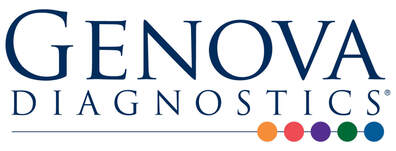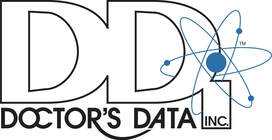Microbiome and stool tests are crucial for children with autism, Down syndrome and other neurodevelopmental conditions because they provide insights into the gut-brain axis, highlighting how gut bacteria influence brain function and behavior. These tests can identify gastrointestinal issues, common in these children, that can exacerbate symptoms. Understanding a child's unique gut microbiome allows for personalized treatment plans, potentially improving both GI and behavioral symptoms. Additionally, these tests contribute to early detection and intervention, enhancing long-term outcomes, and support a holistic approach to health, recognizing the interconnectedness of bodily systems.
If you choose to call your insurance company before you run one of these tests to inquire about potential reimbursement or coverage use the appropriate ICD-10 Codes here and the CPT codes listed for each test below.
- K90.9 (intestinal malabsorption)
- A04.9 (bacterial intestinal infection)
- B37.82 (Candida enteritis)
- R14.0 (bloating)
- R10.9 (abdominal pain)
- R19.7 (diarrhea)
- K59.0 (constipation)
- GI Effects is a comprehensive assessment of complete gut health, assessing the root cause of most GI complaints.
- Genova uses a combination of PCR, culture, and microscopic methods to ensure any and all relevant organisms are identified.
- Genova recovers live organisms (yeast and bacteria) for susceptibility testing and improved treatment options.
- Genova measures metabolomics and can assess the interaction between the microbiome and its host.
- Genova is the market authority on stool inflammatory markers, testing calprotectin, EPX and sIgA.
- Genova has amassed a database of hundreds of thousands of complete stool profiles. Our data driven and evidence-based analysis ensures the highest standard of analytical validity and clinical utility.
The GI Effects Comprehensive Stool Profile Biomarkers
- Digestion/Absorption:
- Pancreatic Elastase-1 is a marker of exocrine pancreatic function.
- Products of Protein Breakdown are markers of undigested protein reaching the colon.
- Fecal Fat is a marker of fat breakdown and absorption.
- Inflammation/Immunology:
- Calprotectin is a marker of neutrophil-driven inflammation. Produced in abundance at sites of inflammation, this biomarker has been proven clinically useful in differentiating between Inflammatory Bowel Disease (IBD) and Irritable Bowel Syndrome (IBS).
- Eosinophil Protein X is a marker of eosinophil-driven inflammation and allergic response.
- Fecal Secretory IgA is a marker of gut secretory immunity and barrier function.
- Fecal Occult Blood detects hidden blood
- Gut Microbiome:
- Metabolic indicators, including short-chain fatty acids and beta-glucuronidase, demonstrate specific and vital metabolic functions performed by the microbiota.
- Commensal Bacteria demonstrate the composition and relative abundance of normal gut organisms.
- Bacterial and mycology cultures demonstrate the presence of specific beneficial and pathological organisms.
- Bacterial and mycology sensitivities are provided for pathogenic or potentially pathogenic organisms that have been cultured. The report includes effective prescriptive and natural agents.
- Parasitology includes comprehensive testing for all parasites on every parasitology exam ordered.
- GI Effects provides microscopic fecal specimen examination for ova and parasites (O&P), the gold standard of diagnosis for many parasites.
- 6 Polymerase chain reaction (PCR) targets detect common protozoan parasites including Blastocystis spp. with reflex subtyping 1-9, Cryptosporidium parvum/hominis, Cyclospora cayetanensis, Dientamoeba fragilis, Entamoeba histolytica, and Giardia.
- Selection of a one-day or three-day sample collection is based on the clinician's clinical index of suspicion for parasitic infection. If there is no/low suspicion, a one-day sample will likely be adequate. For high suspicion, a three-day sample collection is optimal.
The out-of-pocket cost for this test is $429 for patients in our practice and $449 for non-patients.
If you want Genova Diagnostics to bill your insurance submit a copy of your insurance card along with a co-pay of $179.
If your insurance does not cover the test you will be billed for an additional $236.
Genova Diagnostics offers monthly payments for any test over $100.
If you want Genova Diagnostics to bill your insurance submit a copy of your insurance card along with a co-pay of $179.
If your insurance does not cover the test you will be billed for an additional $236.
Genova Diagnostics offers monthly payments for any test over $100.
The Comprehensive Stool Analysis is an invaluable non-invasive diagnostic assessment that permits practitioners to objectively evaluate the status of beneficial and imbalanced commensal bacteria including Clostridium species, pathogenic bacteria and yeast/fungus. Precise identification of pathogenic species and susceptibility testing greatly facilitates selection of the most appropriate pharmaceutical or natural treatment agents.
Important information regarding the efficiency of digestion and absorption can be gleaned from the measurement of the fecal levels of elastase (pancreatic exocrine sufficiency), fat, muscle and vegetable fibers, and carbohydrates.
Inflammation can significantly increase intestinal permeability and compromise assimilation of nutrients. The extent of inflammation, whether caused by pathogens or inflammatory bowel disease (IBD), can be assessed and monitored by examination of the levels of biomarkers such as lysozyme, lactoferrin, white blood cells and mucus via this stool test.
Important information regarding the efficiency of digestion and absorption can be gleaned from the measurement of the fecal levels of elastase (pancreatic exocrine sufficiency), fat, muscle and vegetable fibers, and carbohydrates.
Inflammation can significantly increase intestinal permeability and compromise assimilation of nutrients. The extent of inflammation, whether caused by pathogens or inflammatory bowel disease (IBD), can be assessed and monitored by examination of the levels of biomarkers such as lysozyme, lactoferrin, white blood cells and mucus via this stool test.
The out-of-pocket cost for this test is $215 for patients in our practice and $269 for non-patients.







